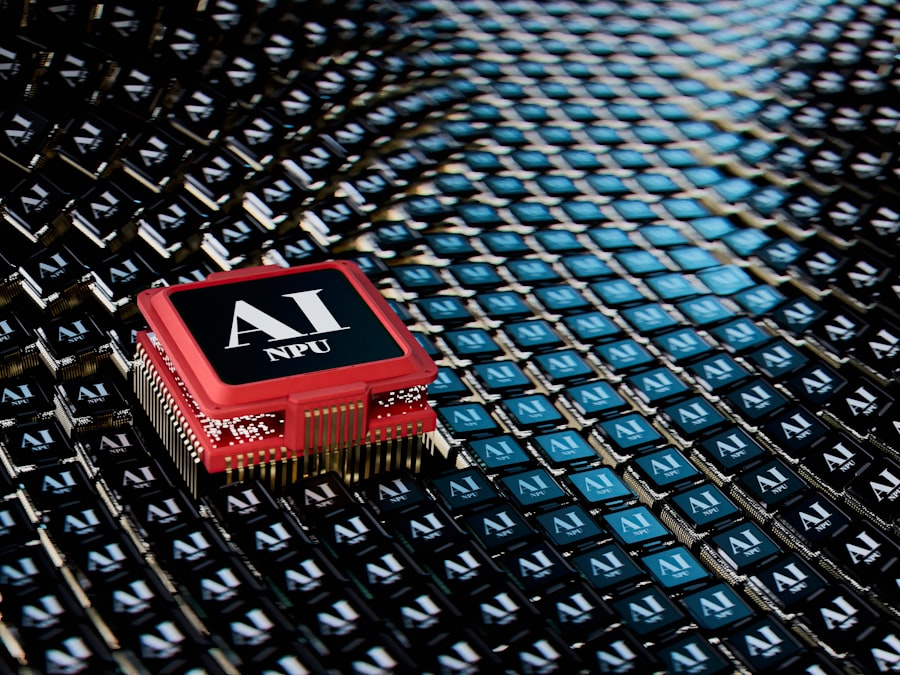
Quantum computing is a cutting-edge field that harnesses quantum mechanical principles for information processing and storage. In contrast to classical computing, which uses bits to represent information as either 0 or 1, quantum computing employs quantum bits, or qubits. These qubits can exist in multiple states simultaneously, thanks to the quantum phenomena of superposition and entanglement.
This unique property enables quantum computers to perform complex calculations exponentially faster than classical computers, making them particularly suitable for solving problems that are currently beyond the capabilities of classical computing methods. The potential applications of quantum computing span a wide range of fields, including cryptography, cybersecurity, drug discovery, and materials science. As the technology progresses, quantum computing is expected to have a significant impact on various industries and society at large.
However, numerous challenges and limitations must be overcome before quantum computing can achieve its full potential.
Key Takeaways
- Quantum computing utilizes quantum-mechanical phenomena to perform operations on data, offering the potential for significantly faster and more powerful computing capabilities than classical computers.
- Industries such as finance, healthcare, and logistics stand to benefit from quantum computing’s ability to solve complex optimization and simulation problems, leading to improved efficiency and innovation.
- Challenges and limitations of quantum computing include the need for error correction, maintaining quantum coherence, and the high cost and complexity of building and operating quantum computers.
- Quantum computing has the potential to outperform classical computing in solving certain types of problems, such as factoring large numbers and simulating quantum systems, but may not be superior for all types of tasks.
- Quantum computing is driving advancements in research and development, particularly in areas such as materials science, drug discovery, and cryptography, where complex calculations and simulations are required.
- Quantum computing is expected to play a significant role in advancing artificial intelligence by enabling more efficient machine learning algorithms and accelerating the development of AI applications.
- Ethical and security implications of quantum computing include concerns about the potential for breaking current encryption methods and the need for responsible use of powerful computing capabilities.
The Potential Impact on Industries
The potential impact of quantum computing on industries is immense, with the potential to revolutionize fields such as finance, healthcare, logistics, and more. For example, in finance, quantum computing could be used to optimize investment portfolios, perform complex risk analysis, and develop more accurate financial models. In healthcare, quantum computing could accelerate drug discovery and development, leading to the creation of new treatments for diseases and medical conditions.
In logistics, quantum computing could optimize supply chain management and transportation routes, leading to more efficient and cost-effective operations. Furthermore, quantum computing has the potential to significantly impact fields such as cryptography and cybersecurity. With the ability to factor large numbers at an unprecedented speed, quantum computers could potentially break many of the encryption methods currently used to secure sensitive information.
This has led to significant research efforts in developing quantum-resistant encryption methods to ensure the security of data in a post-quantum computing world.
Challenges and Limitations of Quantum Computing

Despite the immense potential of quantum computing, there are several significant challenges and limitations that must be addressed before it can become a practical and widely-used technology. One of the main challenges is the issue of qubit stability and error correction. Qubits are extremely fragile and can easily be disturbed by their environment, leading to errors in calculations.
Developing error correction methods for qubits is a major area of research in quantum computing. Another challenge is the issue of scalability. While small-scale quantum computers have been developed, scaling up to larger, more powerful quantum computers is a significant technical challenge.
This is due to the need for precise control over a large number of qubits, as well as the need for efficient methods of qubit connectivity and communication.
Quantum computing represents a paradigm shift from classical computing, offering the potential for exponential speedup in solving certain types of problems. While classical computers use bits to represent information as either a 0 or 1, quantum computers use qubits, which can exist in multiple states simultaneously due to the principles of superposition and entanglement. This allows quantum computers to perform calculations at an exponentially faster rate than classical computers for certain types of problems.
One of the key differences between quantum and classical computing is the concept of parallelism. While classical computers perform calculations sequentially, quantum computers can perform calculations in parallel due to the superposition of qubits. This allows quantum computers to solve certain types of problems much more efficiently than classical computers.
Quantum Computing in Research and Development
| Year | Number of Research Papers | Number of Patents | Investment in R&D (in millions) |
|---|---|---|---|
| 2015 | 150 | 20 | 100 |
| 2016 | 200 | 30 | 150 |
| 2017 | 250 | 40 | 200 |
| 2018 | 300 | 50 | 250 |
| 2019 | 350 | 60 | 300 |
Quantum computing has the potential to revolutionize research and development across a wide range of fields. For example, in materials science, quantum computing could be used to simulate the behavior of complex materials at the quantum level, leading to the development of new materials with unique properties. In chemistry, quantum computing could be used to simulate chemical reactions and molecular structures, leading to the discovery of new drugs and materials.
Furthermore, quantum computing has the potential to significantly impact fields such as optimization and machine learning. Quantum computers could be used to solve complex optimization problems that are currently intractable with classical computing methods, leading to more efficient processes and systems. In machine learning, quantum computing could be used to train more powerful and efficient models, leading to advancements in artificial intelligence and data analysis.
The Role of Quantum Computing in Artificial Intelligence
Accelerating Machine Learning
Quantum computing could be used to accelerate the training of machine learning models by performing complex calculations at an exponentially faster rate than classical computers. This could lead to advancements in areas such as natural language processing, computer vision, and reinforcement learning.
Enabling New AI Algorithms
Furthermore, quantum computing has the potential to enable new types of AI algorithms that are currently intractable with classical computing methods. For example, quantum computers could be used to solve complex optimization problems that arise in AI applications, leading to more efficient and powerful AI systems.
The Future of Quantum Computing in AI
As the field of quantum computing continues to advance, the role of quantum computing in AI is expected to become increasingly important.
Ethical and Security Implications of Quantum Computing

The development of practical quantum computers has significant ethical and security implications that must be carefully considered. One of the main ethical implications is the potential impact on privacy and security. With the ability to break many of the encryption methods currently used to secure sensitive information, quantum computers could potentially lead to widespread breaches of privacy and security if not properly managed.
Furthermore, there are also ethical implications related to the potential impact on society and the economy. The widespread adoption of quantum computing could lead to significant disruptions in many industries, potentially leading to job displacement and economic inequality. It will be important for policymakers and industry leaders to carefully consider these implications and develop strategies for managing the transition to a post-quantum computing world.
In conclusion, quantum computing represents a revolutionary field with the potential to significantly impact industries and society as a whole. While there are significant challenges and limitations that must be addressed, the potential applications of quantum computing are vast and varied. From revolutionizing research and development to impacting fields such as artificial intelligence and cybersecurity, the future of quantum computing holds great promise.
However, it will be important for ethical and security implications to be carefully considered as the field continues to advance.
FAQs
What is quantum computing?
Quantum computing is a type of computing that takes advantage of the strange ability of subatomic particles to exist in more than one state at any time. This allows quantum computers to process and store information in a way that is fundamentally different from classical computers.
How does quantum computing differ from classical computing?
Classical computers use bits to process and store information, with each bit representing either a 0 or a 1. Quantum computers, on the other hand, use quantum bits or qubits, which can represent both 0 and 1 simultaneously due to the principles of quantum mechanics.
What are the potential applications of quantum computing?
Quantum computing has the potential to revolutionize fields such as cryptography, drug discovery, materials science, and optimization problems. It could also lead to breakthroughs in artificial intelligence, weather forecasting, and financial modeling.
What are the challenges in developing quantum computers?
One of the main challenges in developing quantum computers is maintaining the delicate quantum state of qubits, which is easily disrupted by external factors such as temperature and electromagnetic radiation. Another challenge is scaling up the number of qubits while minimizing errors in computation.
Are there any practical quantum computers available today?
While there are experimental quantum computers being developed by companies and research institutions, practical and commercially viable quantum computers are still in the early stages of development. Most current quantum computers are limited in terms of the number of qubits and the duration of quantum coherence.



